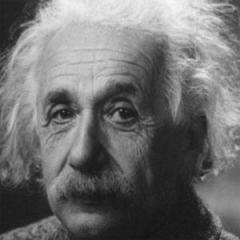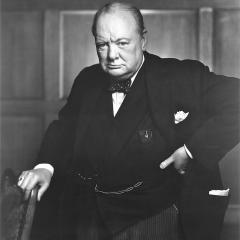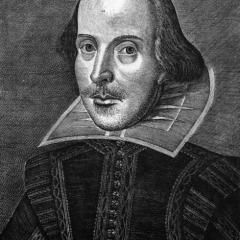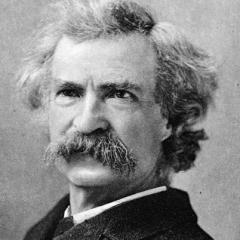The following are the universally fundamental laws of literary communication: 1. one must have something to communicate; 2. one must have someone to whom to communicate it; 3. one must really communicate it, not merely express it for oneself alone. Otherwise it would be more to the point to remain silent.
Religion and morals are symmetrically opposed, just like poetry and philosophy.
One of two things is usually lacking in the so-called Philosophy of Art: either philosophy or art.
Some speak of the public as if it were someone with whom they have had dinner at the Leipzig Fair in the Hotel de Saxe. Who is this public? The public is not a thing, but rather an idea, a postulate, like the Church.
A definition of poetry can only determine what poetry should be and not what poetry actually was and is; otherwise the most concise formula would be: Poetry is that which at some time and some place was thus named.
In the ancients, one sees the accomplished letter of entire poetry: in the moderns, one has the presentiment of the spirit in becoming.
Set religion free, and a new humanity will begin.
When reason and unreason come into contact, an electrical shock occurs. This is called polemics.
All the classical genres are now ridiculous in their rigorous purity.
If one believes philosophers, then what we call religion is only a deliberately popularized or an instinctively artless philosophy. Poets seem to consider religion rather as a variation of poetry which by misjudging its proper beautiful game takes itself too seriously and one-sidedly. Philosophy, however, admits and recognizes that it can begin and complete itself only with religion. Poetry seeks only to strive for the infinite and despises worldly utility and culture, which are the true antitheses of religion. Eternal peace among artists is thus not far away.
Only through religion can logic develop into philosophy, only from this source stems that which makes philosophy more than science. And without religion we will have only novels, or the triviality today called belles lettres instead of an eternally rich and infinite poetry.
Beauty is that which is simultaneously attractive and sublime.
A family can develop only with a loving woman as its center.
We do not see God, but everywhere we see something divine; first and most typically in the center of a reasonable man, in the depth of a living human product. You can directly feel and think nature, the universe, but not the Godhead. Only the man among men can poetize and think divinely and live with religion.
Virtue is reason which has become energy.
If the essence of cynicism consists in preferring nature to art, virtue to beauty and science; in not bothering about the letter of things -- to which the Stoic strictly adheres -- but in looking up to the spirit of things; in absolute contempt of all economic values and political splendor, and in courageous defence of the rights of independent freedom; then Christianity would be nothing but universal cynicism.
True love should be, according to its origin, entirely arbitrary and entirely accidental at the same time; it should seem both necessary and free; in keeping with its nature, however, it should be both destiny and virtue and appear as a mystery and a miracle.
It is a thoughtless and immodest presumption to learn anything about art from philosophy. Some do begin as if they hoped to learnsomething new here, since philosophy cannot and should not do anything further than develop the given art experiences and the existing art concepts into a science, improve the views of art, and promote them with the help of a thoroughly scholarly art history, and produce that logical mood about these subjects too which unites absolute liberalism with absolute rigor.
Religion can emerge in all forms of feeling: here wild anger, there the sweetest pain; here consuming hatred, there the childlike smile of serene humility.
Separate religion from morality, and you have the true energy for evil within man, the terrible, cruel, devastating, and inhuman principle which naturally lies in his spirit. Here the division of the indivisible punishes itself most awfully.
Laziness is the one divine fragment of a godlike existence left to man from paradise.
Can we expect the redemption of the world from scholars? I doubt it. But the time has come for all artists to join together as a confederation in an eternal league.
One has only as much morality as one has philosophy and poetry.
The whole history of modern poetry is a continuous commentary on the short text of philosophy: every art should become science, and every science should become art; poetry and philosophy should be united.
Nothing is more witty and grotesque than ancient mythology and Christianity; that is because they are so mystical.
Novels are the Socratic dialogues of our time. Practical wisdom fled from school wisdom into this liberal form.
Poetry should describe itself, and always be simultaneously poetry and the poetry of poetry.
Just as the Romans were the only nation that was truly a nation, so our age is the first genuine age.
Where philosophy ends, poetry must commence. There should not be a common point of view, a natural manner of thinking which standsin contrast to art and liberal education, or mere living; that is, one should not conceive of a realm of crudeness beyond the boundaries of education. Every conscious link of an organism should not perceive its limits without a feeling for its unity in relation to the whole. For example, philosophy should not only be contrasted to non-philosophy, but also to poetry.
About no subject is there less philosophizing than about philosophy.
A classical work doesn't ever have to be understood entirely. But those who are educated and who are still educating themselves must desire to learn more and more from it.
Man is free whenever he produces or manifests God, and through this he becomes immortal.
You wanted to destroy philosophy and poetry in order to make room for religion and morality which you misunderstood: but you wereable to destroy only yourself.
The naive which is simultaneously beautiful, poetic, and idealistic, must be both intention and instinct. The essence of intention, in this sense, is freedom. Consciousness is far from intention. There is a certain enamoured contemplation of one's own naturalness or silliness which itself is unspeakably silly. Intention does not necessarily require a profound calculation or plan.
Art and works of art do not make an artist; sense and enthusiasm and instinct do.
A good preface must be the root and the square of the book at the same time.
One can only become a philosopher, but not be one. As one believes he is a philosopher, he stops being one.
How many authors are there among writers? Author means originator.
Witty inspirations are the proverbs of the educated.
When ideas become gods, consciousness of harmony becomes devotion, humility, and hope.
Since philosophy now criticizes everything it comes across, a critique of philosophy would be nothing less than a just reprisal.
In true prose everything must be underlined.
Religion is not only a part of education, an element of humanity, but the center of everything else, always the first and the ultimate, the absolutely original.
German writings attain popularity through a great name, or through personalities, or through good connections, or through effort,or through moderate immorality, or through accomplished incomprehensibility, or through harmonious platitude, or through versatile boredom, or through constant striving after the absolute.
The highest good and solely useful is liberal education.
It is as deadly for a mind to have a system as to have none. Therefore it will have to decide to combine both.
Where there is politics or economics, there is no morality.
Even a friendly conversation which cannot be at any given moment be broken off voluntarily with complete arbitrariness has something illiberal about it. An artist, however, who is able and wants to express himself completely, who keeps nothing to himself and would wish to say everything he knows, is very much to be pitied.
Think of something finite molded into the infinite, and you think of man.
It is peculiar to mankind to transcend mankind.
Life is writing. The sole purpose of mankind is to engrave the thoughts of divinity onto the tablets of nature.
Every complete man has his genius. True virtue is genius.
Every uneducated person is a caricature of himself.
Mathematics is, as it were, a sensuous logic, and relates to philosophy as do the arts, music, and plastic art to poetry.
Original love never appears in pure form, but in manifold veils and shapes, such as confidence, humility, reverence, serenity, asfaithfulness and modesty, as gratefulness; but primarily as longing and wistful melancholy.
The difference between religion and morality lies simply in the classical division of things into the divine and the human, if one only interprets this correctly.
Eternal life and the invisible world are only to be sought in God. Only within Him do all spirits dwell. He is an abyss of individuality, the only infinite plenitude.
Irony is a clear consciousness of an eternal agility, of the infinitely abundant chaos.
As long as the artist invents and is inspired, he remains in a constrained state of mind, at least for the purpose of communication. He then wants to say everything, which is the wrong tendency of young geniuses or the right prejudice of old bunglers. Thus, he fails to recognize the value and dignity of self-restraint, which is indeed for both the artist and the man the first and the last, the most necessary and the highest goal.
A classification is a definition comprising a system of definitions.
Whoever has not arrived at the clear insight that there might be greatness entirely outside his own sphere for which he has no understanding, whoever does not have at least a dim inkling in which area of the human spirit this greatness might be situated: he is within his own sphere either without genius, or he has not educated himself up to the point of the classical attitude.
Only he who possesses a personal religion, an original view of infinity, can be an artist.
Wit is the appearance, the external flash, of fantasy. Hence its divinity and the similarity to the wit of mysticism.
One should have wit, but not wish to have it; otherwise there will be witticism, the Alexandrian style of wit.
Mysteries are feminine; they like to veil themselves but still want to be seen and divined.
In every good poem everything must be both deliberate and instinctive. That is how the poem becomes ideal.
There is no self-knowledge but an historical one. No one knows what he himself is who does not know his fellow men, especially the most prominent one of the community, the master's master, the genius of the age.
From what the moderns want, we must learn what poetry should become; from what the ancients did, what poetry must be.
The meanest authors have at least this similarity with the great author of heaven and earth, that they usually say after a completed day of work: "And behold, what he had done was good.
One of the two is almost always a prevailing tendency of every author: either not to say some things which certainly should be said, or to say many things which did not need to be said. The first is the original sin of synthetic natures, the latter of analytical natures.
Religion is absolutely unfathomable. Always and everywhere one can dig more deeply into infinities.
One mentions many artists who are actually art works of nature.
All men are somewhat ridiculous and grotesque, just because they are men; and in this respect artists might well be regarded as man multiplied by two. So it is, was, and shall be.
The life of the artist should be distinguished from that of all other people, even in external habits. They are Brahmins, a higher caste, not ennobled by birth, however, but through deliberate self-initiation.
Honor is the mysticism of legality
Is it not superfluous to write more than one novel if the writer has not become, say, a new man? Obviously, all the novels of an author not infrequently belong together and are to a certain degree only one novel.
The analytical writer observes the reader as he is; accordingly, he makes his calculation, sets his machine to make the appropriate effect on him. The synthetic writer constructs and creates his own reader; he does not imagine him as resting and dead, but lively and advancing toward him. He makes that which he had invented gradually take shape before the reader's eyes, or he tempts him to do the inventing for himself. He does not want to make a particular effect on him, but rather enters into a solemn relationship of innermost symphilosophy or sympoetry.
Wit is an explosion of the compound spirit.
Many works of the ancients have become fragments. Many works of the moderns are fragments at the time of their origin.
A critic is a reader who ruminates. Thus, he should have more than one stomach.
If you want to see mankind fully, look at a family. Within the family minds become organically one, and for this reason the family is total poetry.
An artist is he for whom the goal and center of life is to form his mind.
No idea is isolated, but is only what it is among all ideas.
The French Revolution, Fichte's Theory of Knowledge, and Goethe's Wilhelm Meister are the three greatest tendencies of the age. Whoever takes offence at this combination, and whoever does not consider a revolution important unless it is blatant and palpable, has not yet risen to the lofty and broad vantage point of the history of mankind.
It is individuality which is the original and eternal within man; personality doesn't matter so much. To pursue the education and development of this individuality as one's highest vocation would be a divine egoism.
Ideas are infinite, original, and lively divine thoughts.
The life and vigor of poetry consists of the fact that it steps out of itself, tears out a section of religion, then withdraws into itself to assimilate it. The same is true of philosophy.
A genuinely free and educated man should be able to tune himself, as one tunes a musical instrument, absolutely arbitrarily, at his convenience at any time and to any degree, philosophically or philologically, critically or poetically, historically or rhetorically, in ancient or modern form.
Religion must completely encircle the spirit of ethical man like his element, and this luminous chaos of divine thoughts and feelings is called enthusiasm.
A so-called happy marriage corresponds to love as a correct poem to an improvised song.
If one writes or reads novels from the point of view of psychology, it is very inconsistent and petty to want to shy away from even the slowest and most detailed analysis of the most unnatural lusts, gruesome tortures, shocking infamy, and disgusting sensual or spiritual impotence.
Versatility of education can be found in our best poetry, but the depth of mankind should be found in the philosopher.
Sense (for a particular art, science, human being, and so forth) is divided spirit; self-restraint is consequently the result of self-creation and self-destruction.
The poetry of this one is called philosophical, of that one philological, of a third rhetorical, and so on. Which is then the poetic poetry?
As the ancient commander addressed his soldiers before battle, so should the moralist speak to men in the struggle of the era.
Kant introduced the concept of the negative into philosophy. Would it not also be worthwhile to try to introduce the concept of the positive into philosophy?
Plato's philosophy is a dignified preface to future religion.
God is each truly and exalted thing, therefore the individual himself to the highest degree. But are not nature and the world individuals?
The surest method of being incomprehensible or, moreover, to be misunderstood is to use words in their original sense; especially words from the ancient languages.
Every good man progressively becomes God. To become God, to be man, and to educate oneself, are expressions that are synonymous.
Prudishness is pretense of innocence without innocence. Women have to remain prudish as long as men are sentimental, dense, and evil enough to demand of them eternal innocence and lack of education. For innocence is the only thing which can ennoble lack of education.
The most important thing in love is the sense for one another, and the highest thing the faith in one another. Devotion is the expression of that faith, and pleasure can revive and enhance that sense, even if not create it, as is commonly thought. Therefore, sensuality can delude bad persons for a short time into thinking they could love each other.
If you want to penetrate into the heart of physics, then let yourself be initiated into the mysteries of poetry.
He who has religion will speak poetry. But philosophy is the tool with which to seek and discover religion.
Women do not have as great a need for poetry because their own essence is poetry.
In the world of language, or in other words in the world of art and liberal education, religion necessarily appears as mythology or as Bible.
All the great truths are basically trivial and so we have to find new ways, preferably paradoxical ways, of expressing them, in order to keep them from falling into oblivion.
I can no longer say my love and your love; they are both alike in their perfect mutuality.
The subject of history is the gradual realization of all that is practically necessary.
Gracefulness is a correct life: sensuality which contemplates and forms itself.
Without poetry, religion becomes obscure, false, and malignant; without philosophy, licentious in all wantonness, and lascivious to the point of self-castration.
An aphorism ought to be entirely isolated from the surrounding world like a little work of art and complete in itself like a hedgehog.
When the author has no idea of what to reply to a critic, he then likes to say: you could not do it better anyway. This is the same as if a dogmatic philosopher reproached a skeptic for not being able to devise a system.
The genuine priest always feels something higher than compassion.
The main thing is to know something and to say it.
The symmetry and organization of history teaches us that mankind, during its existence and development, genuinely was and became an individual, a person. In this great personality of mankind, God became man.
To disrespect the masses is moral; to honor them, lawful.
Combine the extremes, and you will have the true center.
The historian is a prophet looking backward.
Form your life humanly, and you have done enough: but you will never reach the height of art and the depth of science without something divine.
He who does not become familiar with nature through love will never know her.
Reason is mechanical, wit chemical, and genius organic spirit.
In order to be able to write well upon a subject, one must have ceased to be interested in it; the thought which is to be soberlyexpressed must already be entirely past and no longer be one's actual concern.
An artist is he who has his center within himself. He who lacks this must choose a particular leader and mediator outside of himself, not forever, however, but only at first. For man cannot exist without a living center, and if he does not have it within himself, he may seek it only in a human being. Only a human being and his center can stimulate and awaken that of another.
All artists are self-sacrificing human beings, and to become an artist is nothing but to devote oneself to the subterranean gods.













